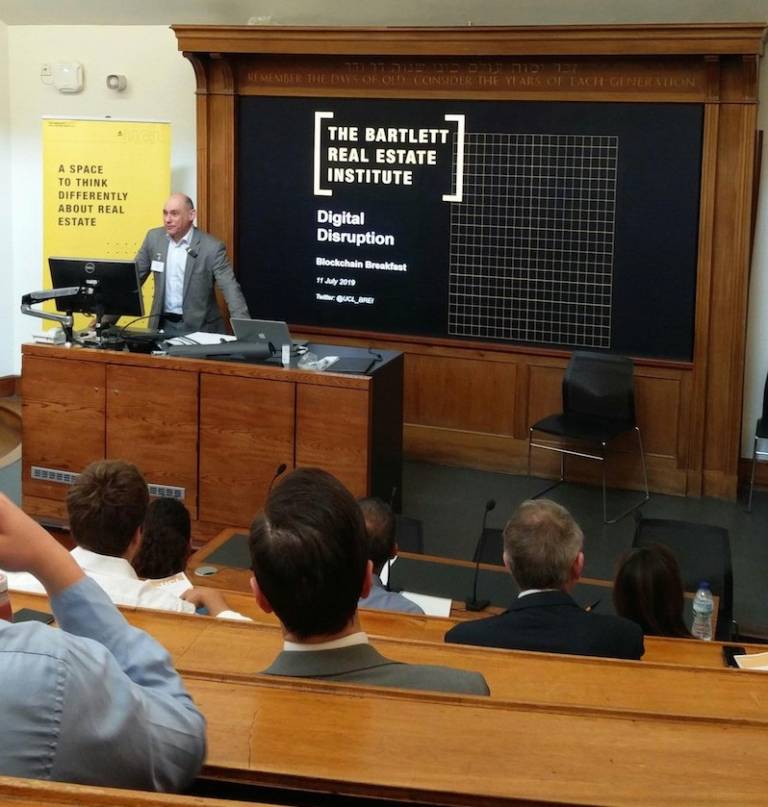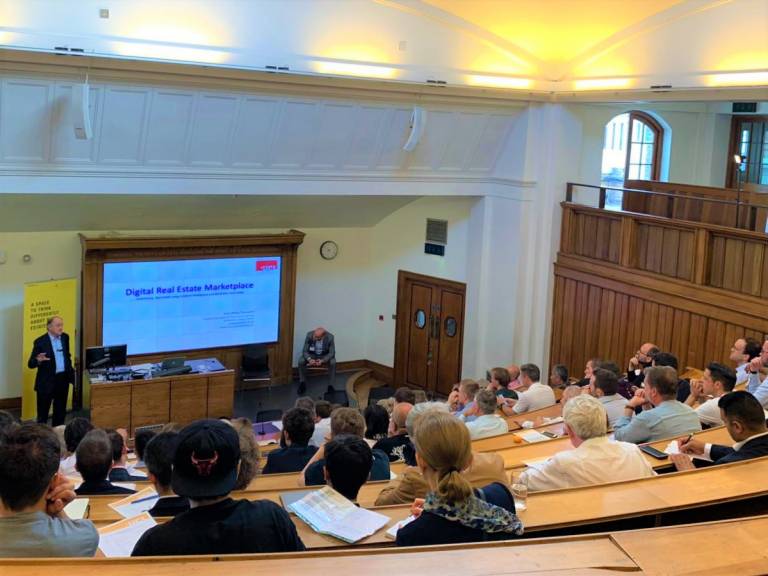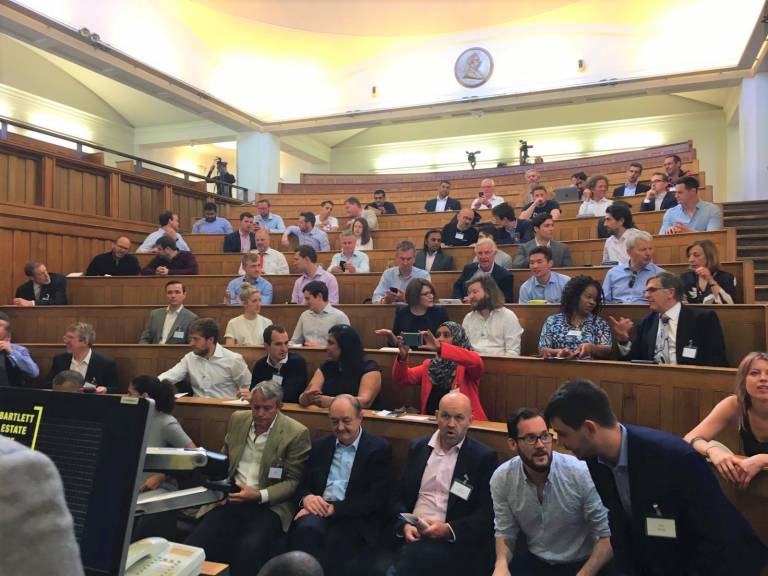The First Bartlett Real Estate Digital Disruption Event: The Blockchain Breakfast
12 July 2019


Around 90 individuals from a range of different organisations congregated in the main UCL Wilkins Building at UCL bright and early on Thursday 11th July for the ‘Blockchain Breakfast’ organised by the Bartlett Real Estate Institute and Resilience Partners Ltd. This event was the first of the BREI’s core themes of Digital Disruption.
The event was held in the Grade 1 listed Gustave Tuck Lecture Theatre and was formally opened by the Director of the BREI, Professor Andrew Edkins. This welcome was followed by presentations from UCL Computer Science’s Professor Phillip Treleaven, Resilience Partners’ founder and Visiting Professor to the Bartlett, Professor Jeremy Bartnett and Dr Simon Addyman from the Bartlett School of Construction and Project Management. A short video of an interview with Nick Wright from CBRE was then shown.
The finale of the formal part of the breakfast event was a lively panel discussion about the current ‘hot topic’ of tokenisation of real estate assets. The panel comprised: Alex Carter-Silk, an IT & Digital Specialist from Keystone Law, Jonny Fry, CEO of Team Blockchain; Ami Ben David, a Co-Founder and Managing Partner of SPiCE VC; Kyle McFadden, Director at Global Investment Management – Greystar; Jack Sibley, Innovation & Technology Strategies (Real Estate) – Nuveen. The panel discussion was steered by Jeremy Barnett. After this, those that could, moved to the South Cloisters to have more informal conversations.
The key points that emerged from the Blockchain Breakfast were that the technology that underpins Blockchain is now firmly established, but needs to be matured so that it can be accepted and adopted by those organisations and parties that are classed as the ‘Institutions’. These institutional players work in a strictly governed and heavily regulated environment and so will not be at the forefront of radical technology adoption. But the potential for Blockchain technologies to deliver on fundamental disruption to both the construction and real estate sector was, according to those presenting at the event, just a matter of time.
This blockchain technology with its combination of inherently high intrinsic data security and ability to be easily transmitted and disitributed, coupled with other technological developments such as natural language processing and coding and the Internet of Things, will allow the emergence of entire new fields of activity. This ranges from richer ability to make better decisions on real estate as confidence in these decisions is grown through the use of modelling (e.g. Building Information Modelling, virtual and augmented reality). This will take place in parallel with emerging new areas of contract law through the development of ‘smart contracts’. The use of Blockchain also heralds the potential move of real estate transactions from the closed and opaque market where transaction costs are high, to a marketplace where the assets are far better understood in terms of their history of both their creation and in use.
Whilst this might sound like another example of the relentless march of machines taking over, a good point was made that a lot of real estate involves activities and decisions carried out by us – human beings. As long as we are involved in the world of creating, occupying and operating our real estate, we will continue to face problems, seek ever more from our real estate assets and present a challenge that will still require professionals to be involved in the future of real estate.

Register your interest for the follow on event
 Close
Close

